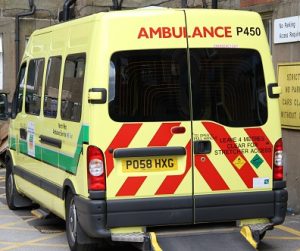TWO THIRDS of the public think that vital public services, such as social care, are put at risk when people who can pay their council tax do not, according to a new YouGov survey.
Already hundreds of millions go unpaid every year and over 80% of the public think that this would continue or get worse if local councils didn’t use bailiffs to recover unpaid debts. Unsurprisingly, twice as many adults back the use of enforcement agents to recover Council Tax debts than oppose civil enforcement.
It is vital for local authorities to collect debts that were incurred before the coronavirus lockdown to fill the funding gaps in their budgets. Between March and June, councils incurred £4.8bn of extra costs and income losses. Despite extra central Government funding, local authorities have warned the budget shortfall in England and Wales could top £7.4bn. From Monday 24 August, authorities will be able to use enforcement agents again to recoup outstanding debts when their own efforts to collect money owed have been exhausted. Enforcement agents returning to work will be collecting debts incurred before coronavirus which have been suspended for five months.

Social care at risk
Enforcement agents will not enter homes to take control of goods after visits resume, save for exceptional circumstances and where deemed safe for agents and customers. This policy will be regularly reviewed in line with government and public health guidance. Where agents encounter vulnerable people, additional support will be provided by welfare teams and referral to council support services.
The YouGov survey found that 65% said non-payment puts services, like social care, at risk. Fears are particularly acute among over 65s, 75% of whom thought non-payment puts services at risk, and among Labour voters (69%). More than half of those polled, 56%, said councils should use bailiffs to collect money from people who can pay but won’t. This was more than twice the numbers who said councils should not use bailiffs, at 28%.
Support for enforcement action is highest amongst Conservative voters, 67%, and is above 50% in every region outside London. Almost half of those surveyed, 42%, said that a failure to use bailiffs would lead to fewer people paying their council tax and 39% said non-payment rates would stay the same. Only 5% said it would lead to improved compliance.
The poll was commissioned by CIVEA, the association that represents over 95% of all enforcement agents. Its members collect annually more than £500m of unpaid tax and fines, including £273m in unpaid council tax – enough to pay the starting salaries of over 13,000 police officers.
The survey also found that widespread support among the public for enforcement action for non-payment of court-imposed fines, with 64% of people saying bailiffs should be used. Some 66% of those polled said they supported the current practice of recouping the costs of collecting the debt from the person who owed the outstanding debt.
There are also concerns authorities will face an increase in council tax evasion this year, and 71% of people believe some taxpayers will use the current health crisis to avoid paying their council tax, even though they can meet the payments. Only 10% of people polled did not think this would happen.
Russell Hamblin-Boone, CIVEA Chief Executive, said, “The overwhelming majority of people pay their council tax on time because they recognise non-payment is unfair and puts vital public services at risk. Councils face a deepening financial crisis because of increased costs and lost revenue during lockdown so it is important that civil enforcement work can resume to recover much needed funding for front-line services.
“Enforcement action is always a last resort by councils when other collection measures have failed and, even then, in half of all cases, an affordable payment plan is set up through e-mails or phone calls. CIVEA’s post-lock down support plan will enable civil enforcement to resume safely, ensuring that public health advice is adhered to and the most vulnerable are protected.”






Recent Comments